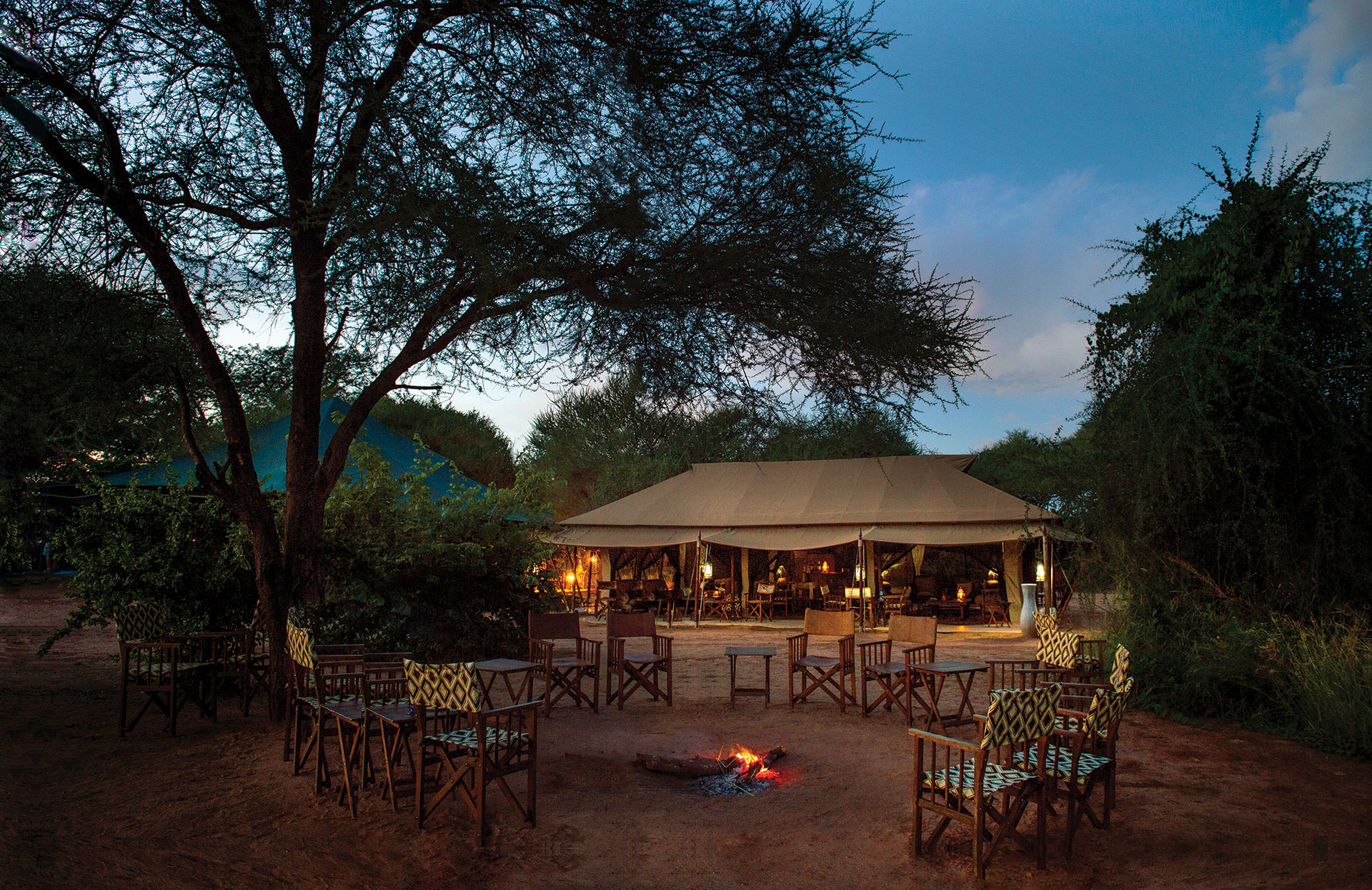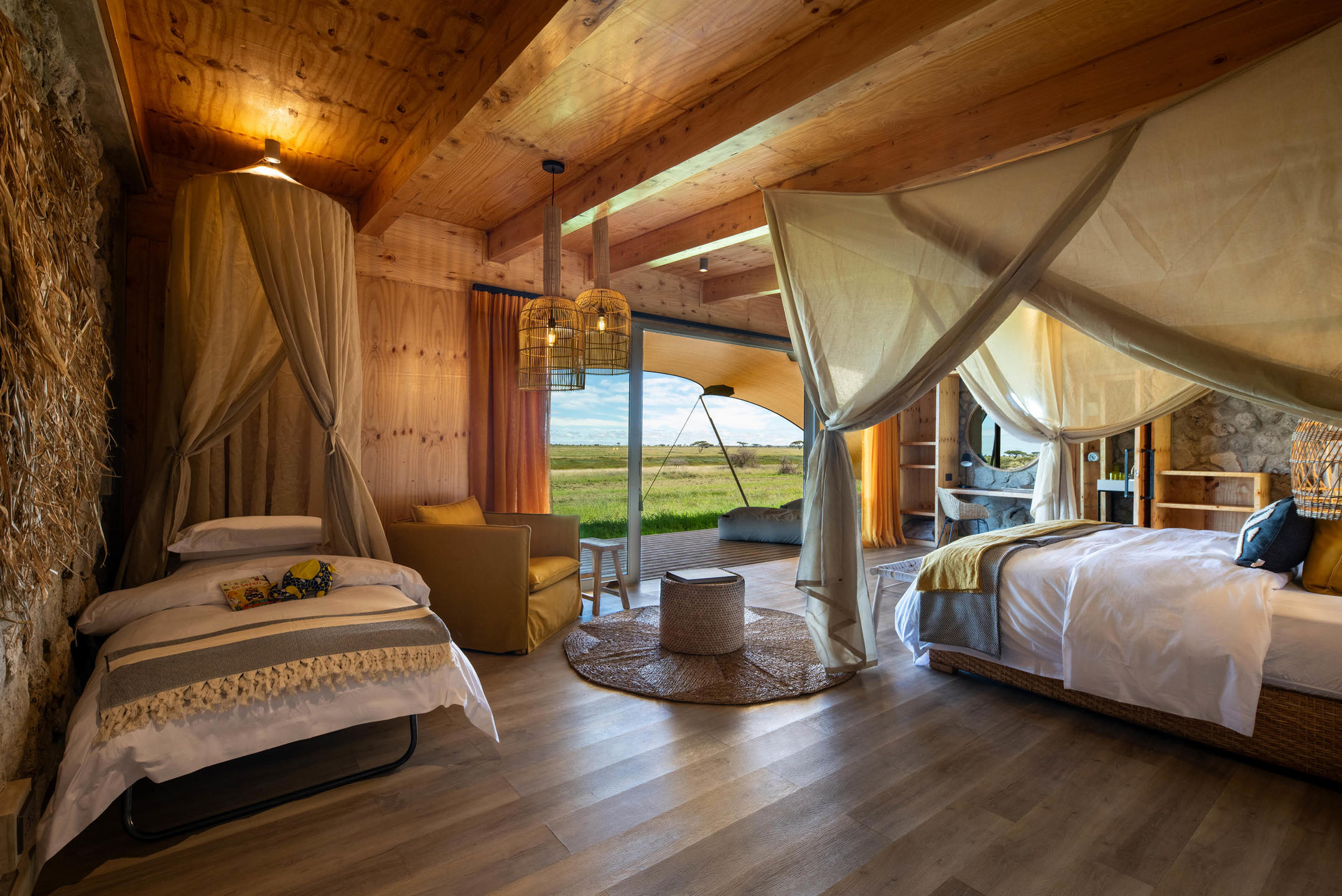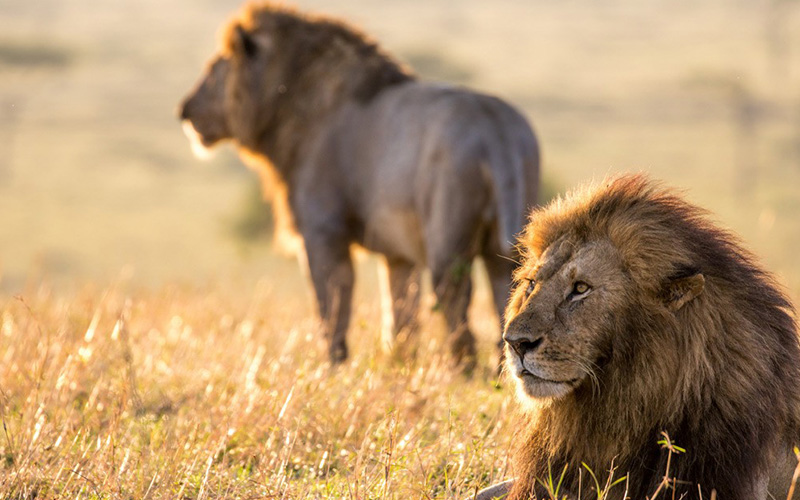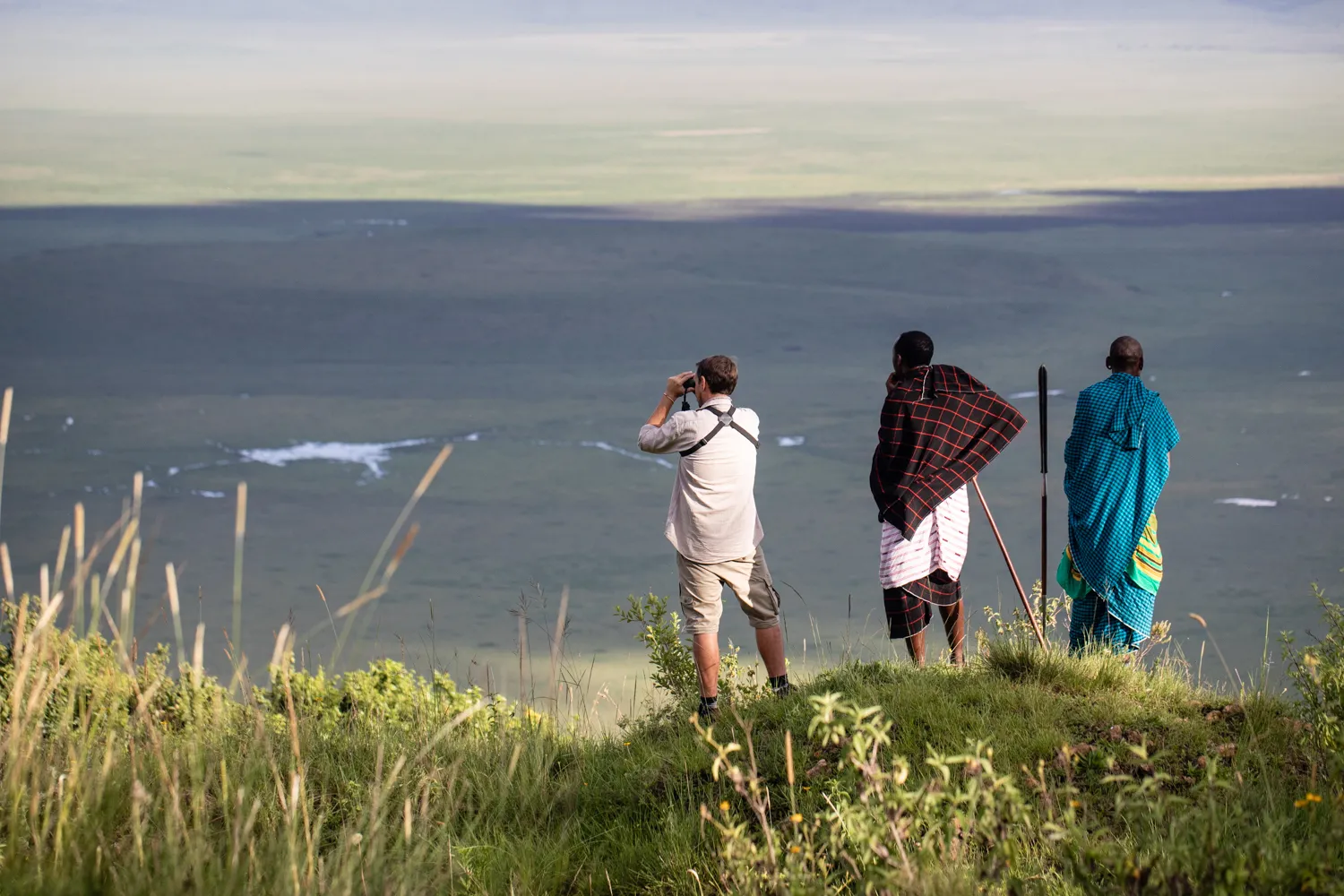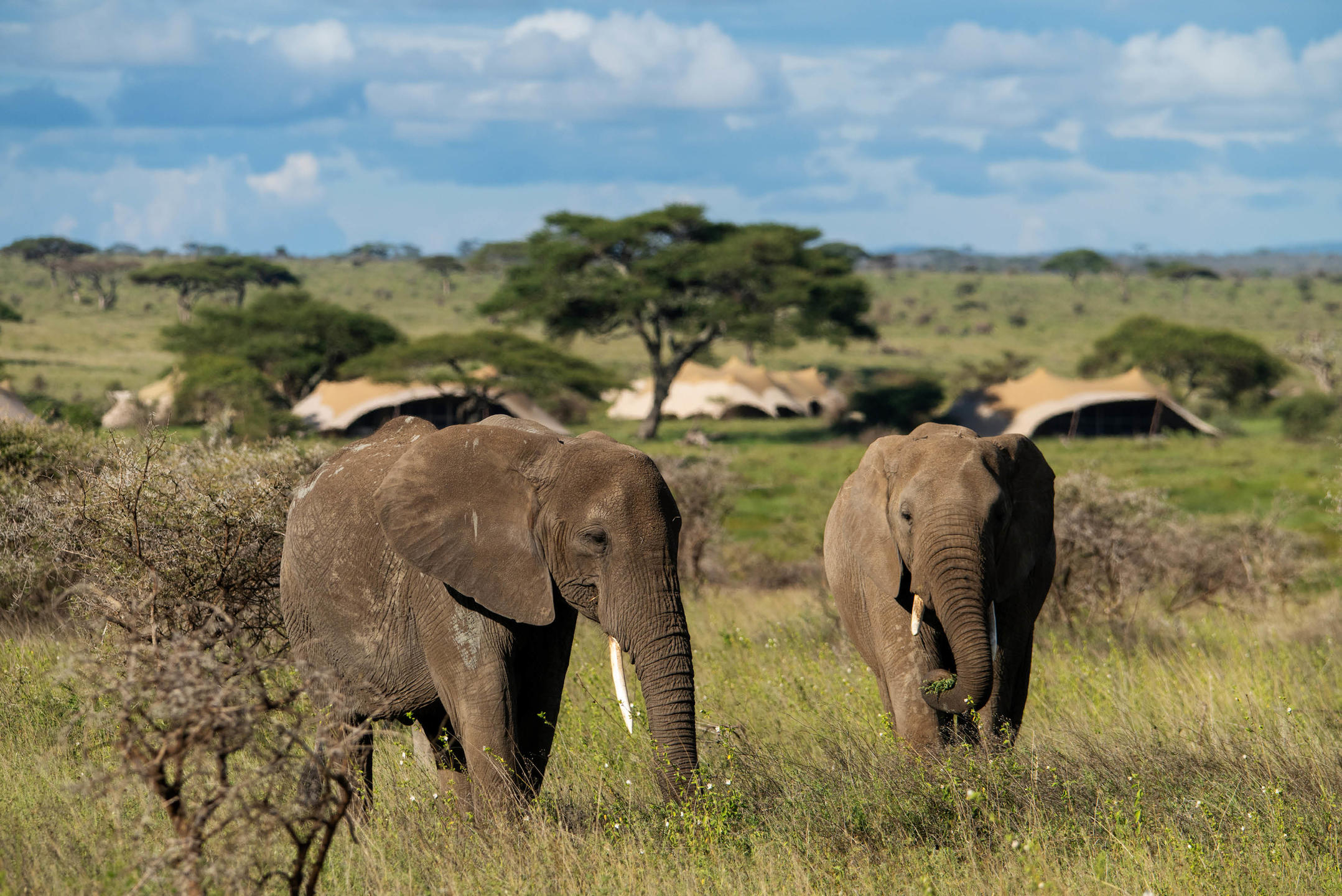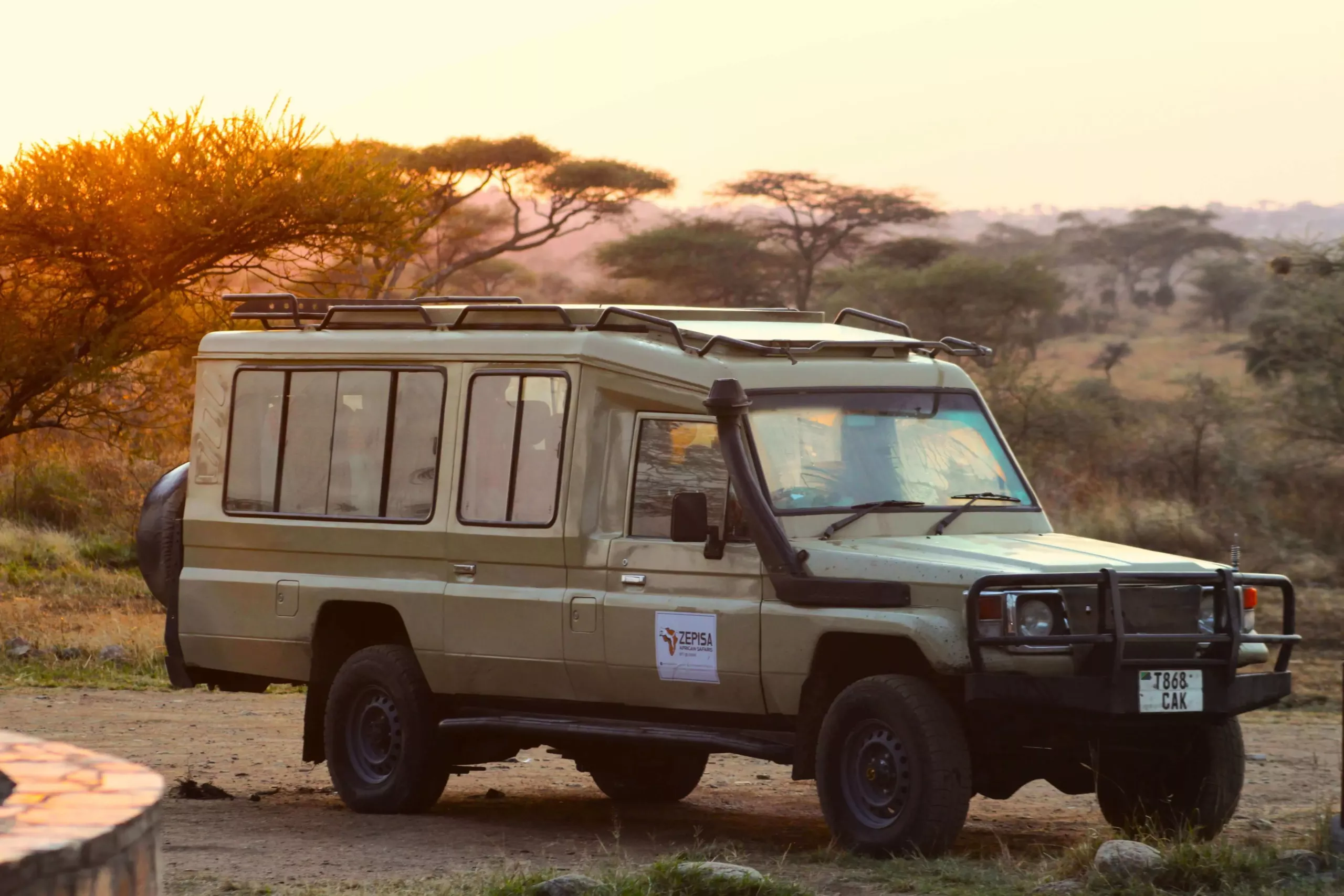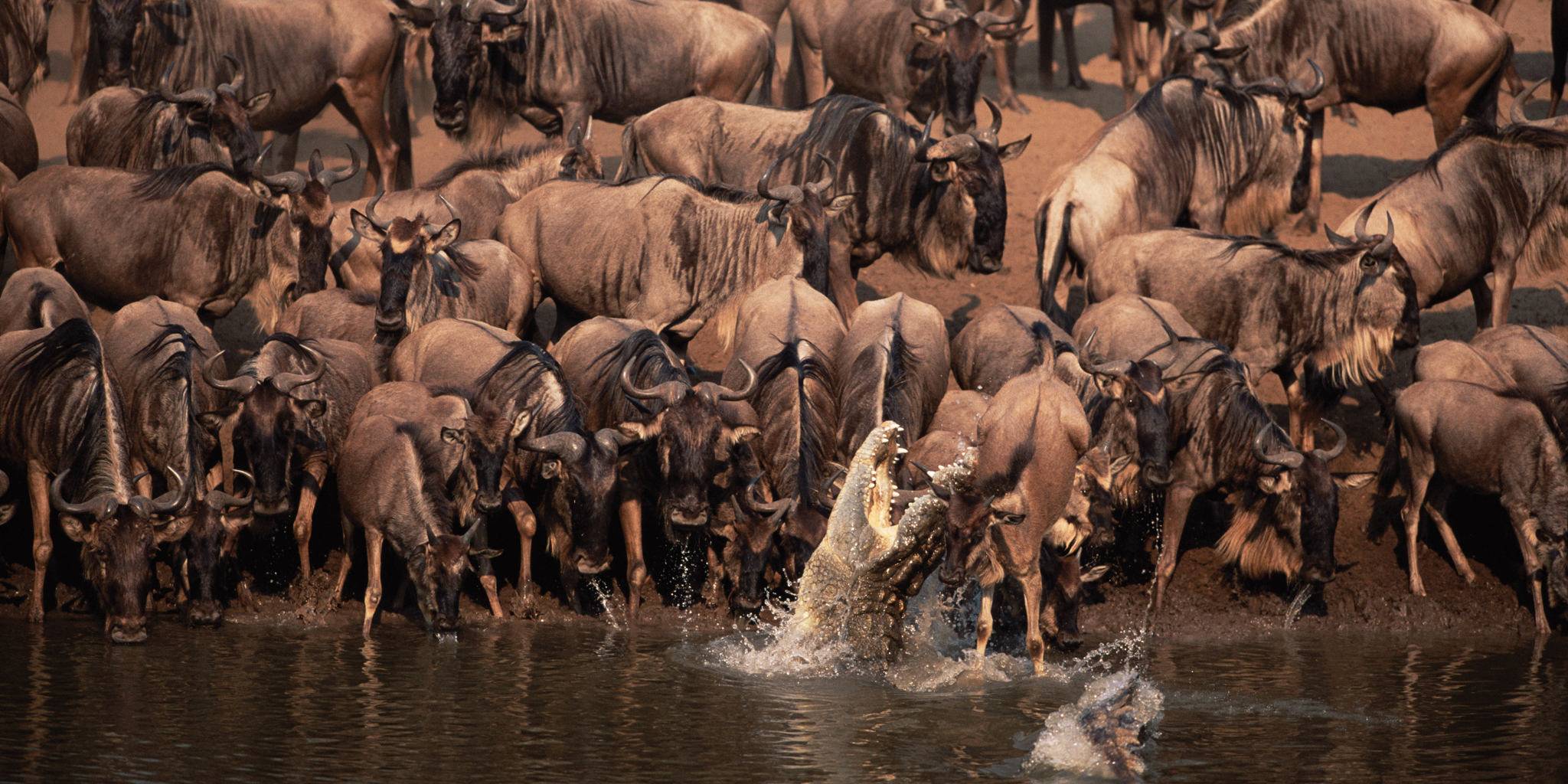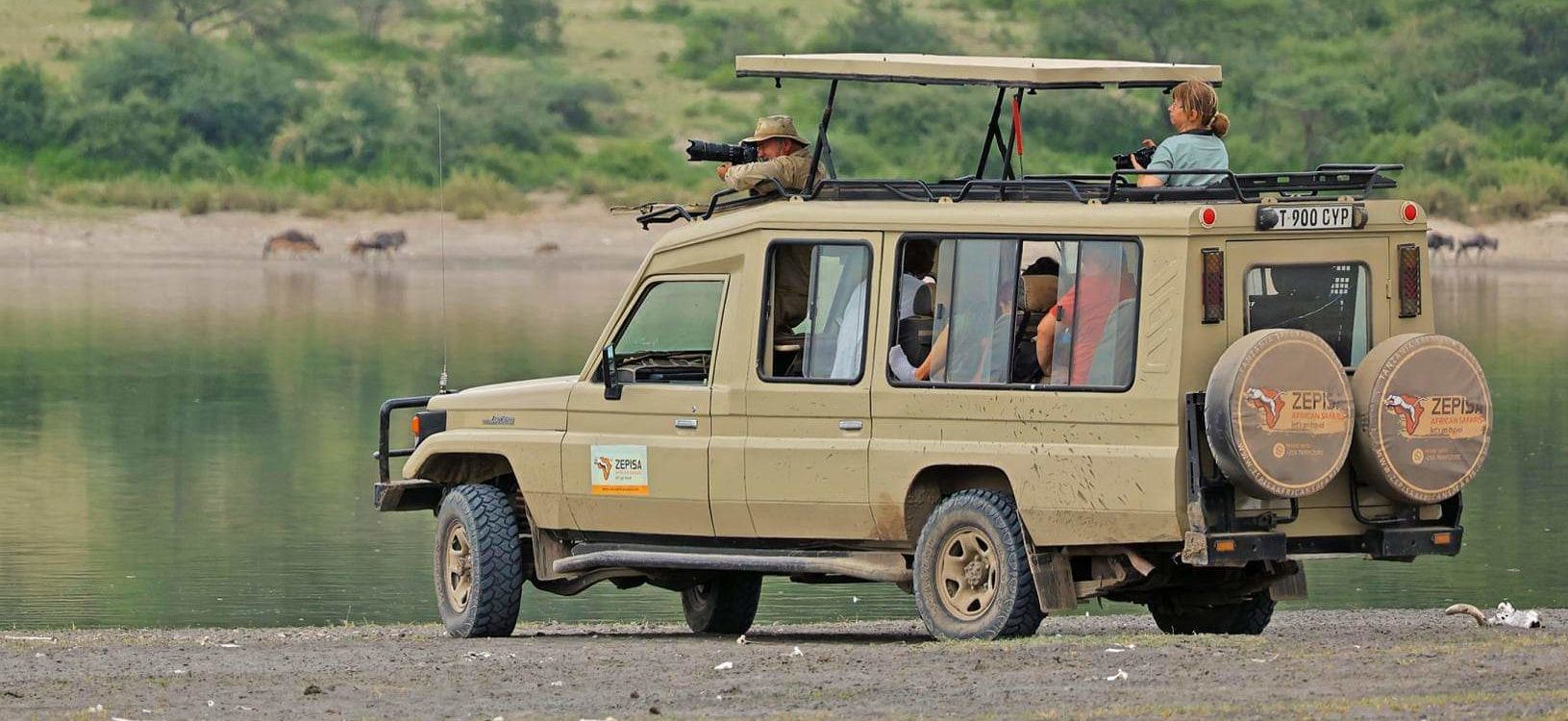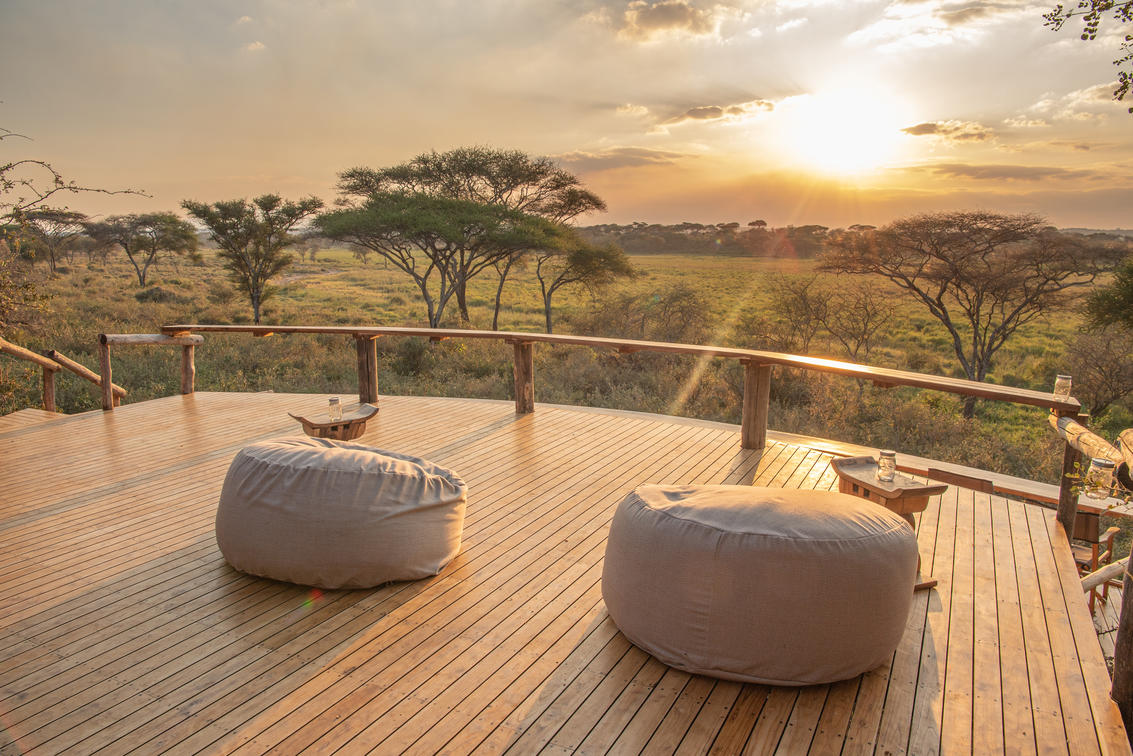Tanzania safari costs: Comparing Safaris
Tanzania safari costs: Budget, Mid-range & Luxury Safaris
Are you planning a safari in Tanzania? If so, you may be wondering, how much is Tanzania safari costs! The answer to this question is simple. Your Tanzanian safari will cost whatever you can afford.
Transportation, guides, and other safari-related expenses all contribute to the overall cost of your Tanzanian safari. Tanzania safari costs depends on the type of accommodation and the size of your group. It could range from a few hundred to several thousand dollars.
Setting a budget for your safari begins with understanding your spending limits. Consider how much you’re willing to invest in this adventure. One way to manage costs is by deciding whether you’d like to share your safari vehicle with other travelers. This option not only reduces costs but also allows for shared experiences with fellow enthusiasts.
Your Tanzania safari costs can vary significantly depending on what activities or attractions you want to participate in. These could include hot air balloon rides or day trips to national parks. If you prefer a more exclusive experience, opting for a private safari will influence your budget.
The Tanzania safari costs will depend on your budget and the amenities you choose. Consider what you want to include in your trip and plan accordingly. By balancing shared and private experiences, you can tailor your safari to suit both your preferences and financial plans.
A budget Tanzania safari will cost you from $200 per person per day. This is the lowest rate option and is best suited for those who are on a tight budget.
For those looking for a bit more comfort, a midrange Tanzania safari typically costs around $400 USD per person per day. If you’re seeking a more lavish experience, a luxury Tanzania safari costs around $500-$1500 per person per day. All prices include transport, accommodation, meals, and activities.
Tanzania safari costs range from $200 to $1,000 per person per day. This range encompasses all types of safaris, from budget to luxury, ensuring there’s an option for every type of traveler. Whether you’re looking for a cost-effective adventure or an indulgent escape, these prices provide a clear picture of what to expect.
When planning a 5 day safari tanzania cost can vary widely depending on the level of luxury and services you choose. View this pacakes for the prices 5-Day Mikumi NP & Nyerere NP Budget Tour, 5-Day Ngorongoro, Serengeti & Tarangire, 5-Day Tanzania’s Premier Budget Wildlife Safari
For those seeking a more opulent experience, luxury packages can soar above $4,000 per week. However, if neither extreme suits your needs, there are middle-ground options. A balanced approach often combines comfort with affordability, and these mid-range safaris generally cost about $1,700 per person for a 5-day trip.
What contributes to the overall expense of a Tanzania safari costs?
When planning your Tanzania safari, it’s crucial to consider not only the primary expenses but also the additional costs that can significantly impact your budget. Here’s a comprehensive guide to what you need to factor in:
1. Specialized interests
Special-interest safaris, such as those focused on chimpanzees or bird watching, can be more expensive than standard options due to the need for specialized local knowledge and equipment. For example, chimpanzee tracking requires experienced guides and specialized equipment like binoculars and cameras. Similarly, bird-watching safaris might necessitate additional gear to identify various species. These extra requirements, along with specialized accommodations, often lead to higher costs compared to standard safaris.
In addition to the guide and equipment, specialized accommodations may be needed in order to ensure a comfortable and successful experience. All of these additional requirements can make these special-interest Safaris more expensive than a standard safari.
| Activities | Price range from.. |
|---|---|
| Wildlife Safaris | $ 200 per person per day |
| Photo Safaris | US$ 750 – US$ 1200 |
| Birding Safaris | US$ 400 – US$ 600 |
| Cultural Experience Tours | US$ 50 – US$ 300 ) |
| Balloon Safaris | US$ 550– US$ 650 |
| Boating & Canoeing | US$ 40 – US$ 60 |
| Mountain Climbing Kilimanjaro | US$ 750 – US$ 1300 |
| Wildebeest Migration Safari | US$ 60 – US$ 3805 |
| Diving & Snorkelling Trips | US$ 33– US$ 45 |
| Hiking & Walking Safaris | US$160 – US$ 180 |
| Chimpanzee Trekking | US$1050 – US$1300 |
2. Visa Costs
Before embarking on your adventure, you’ll need to secure a visa for Tanzania. The options include a prearranged Tanzania E-Visa or a visa obtained upon arrival. Visa fees vary based on the type:
- Normal Visa: $50
- Multiple Entry Visa: $100
- Transit Visa: $30-$35
- Business Visa: $250
You can apply for a Tanzania E-Visa online, which can be used in both Tanzania and Zanzibar.
3. Tipping Costs
While tipping is not mandatory in Tanzania, it’s customary and appreciated. Budget around $10 per person per day for tipping staff such as tour guides, porters, and chefs. Some accommodations provide tipping boxes at the reception for your convenience.
4. Airport Transfers Cost
Transfers from major airports like Julius Nyerere International Airport to Dar es Salaam cost between $25 to $55. Kilimanjaro International Airport to Arusha transfers range from $50 to $75 per taxi. On Zanzibar Island, transfers cost around $25 to Stone Town and $70 to $80 to other areas.
5. Travel Insurance Cost
Travel insurance is a must-have for peace of mind. Plans vary in cost and coverage period, with options such as:
- Basic Plan: $89 for up to 10 days
- Standard Plan (Recommended): $122.9 for up to 10 days
- Premium Plan: $169 for up to 10 days
These plans often include COVID-19 coverage and are cancellable. Typically, insurance costs are around 5 to 6% of your total safari expenses. Recommended travel insurance vendors for Tanzania Safaris, IMG, Travelex’s, worldnomads
6. Length of stay
The cost-effectiveness of your safari often improves with longer stays. Discounts may apply to airfare and lodging, while park entry fees remain constant. Safari camps and lodges frequently offer discounts for extended trips.
7. Level of the comfort of accommodation
camping safaris is an affordable way to explore Tanzania. You can set up a tent, cook your own meals and immerse yourself in nature. It’s a great way to experience the beauty of the country without breaking the bank. It is much cheaper than staying in a hotel or resort, which usually requires a large deposit.
Accommodation options range from budget to luxury. Budget accommodation usually has basic amenities, such as shared bathrooms.
For those looking at cost specifics, here’s a detailed breakdown:
- Basic/Budget: Prices start from $20 to $75 per person, per day.
- Mid-Range/Economy: Starting from $75 onwards, these options often include perks like air-conditioning,Swimming pool and private bathrooms.
- Luxury/Premium: Expect to pay from $350 onwards, per person, per day, with top-of-the-line amenities such as swimming pools, gourmet restaurants, and spas.
In addition to these categories, Tanzania offers a variety of private accommodations within its private concessions, featuring camps and lodges that cater to different preferences and budgets:
- Tanzania Camps: From $200 onwards, these provide a more rustic yet immersive experience.
- Tanzania Lodges: Starting at $350, they offer a blend of comfort and adventure.
- Tanzania Luxury Lodges and Hotels: With prices from $500 onwards, these promise unparalleled luxury and service.
No matter what your budget is, Tanzania has something for everyone. This diverse range of accommodations ensures that visitors can find the perfect fit for their travel style and financial plan.
8. Location of the accommodation
Choosing lodges outside national parks can be more budget-friendly and may reduce entry fees. Rural lodges often offer better value than those in developed areas. Booking in advance and traveling during low-tourist seasons can yield significant savings.
9. Group size
The Tanzania safari costs depend on group size; the larger the group, the lower the cost per person. However, larger groups often lack the intimate and enjoyable experience that a private safari provides. Private safaris offer more control over who you travel with, creating a more meaningful experience as the group is closed. Additionally, private safaris often provide access to areas and activities that are not available to larger groups.
For those seeking a private safari experience, here’s a more detailed look at the costs:
- Groups of 2 individuals can expect to pay around $400 per person, per day.
- For groups of 4, the cost drops to approximately $300 per person, per day.
- Larger groups of 6 may pay about $250 per person, per day.
Traveling solo? Anticipate a cost between $400 to $600 per day, with potential savings during the low season.
10. When you want to go
If you’re considering a safari adventure, understanding the costs involved during peak and low seasons is crucial to planning your budget effectively. Here’s a breakdown of typical expenses for different safari categories:
Peak Season (June to October)
- Budget/Camping Safaris: Expect to pay between $250 to $300 per person, per night.
- Mid-Range/Lodge Safaris: Prices typically start at $250 to $450 per person, per day.
- Luxury Safaris: These can begin from $500-$1000+ per person, per day, offering an indulgent experience with top-notch amenities.
Low Season (April to May)
- Budget/Camping Safaris: Costs range from $200 to $200 per person, per night, offering a slight savings compared to the peak season.
- Mid-Range/Lodge Safaris: Prices generally fall between $200 and $350 per person, per day.
- Luxury Safaris: During this time, luxury experiences start at $400 per person, per day, making them a bit more accessible.
No matter your budget, there’s a safari option that can fit your needs while providing an unforgettable experience.
Should You Book Your Tanzania Safari in Advance or Wait Until Arrival?
Planning a safari in Tanzania is an exciting adventure, but timing can be crucial. Booking in advance offers several advantages, ensuring your experience is both seamless and memorable. Benefits of Booking in Advance;
- Guaranteed Availability: Popular parks like Serengeti and Ngorongoro Crater attract travelers worldwide. Securing your spot early ensures you won’t miss out on the best lodges or tours.
- Early-Bird Savings: Many operators offer discounts for those who plan ahead. By booking months in advance, you can capitalize on these savings, reducing the overall cost of your trip.
- Customizable Itineraries: With more time to plan, you’re able to tailor your safari experience. Custom options can include private tours, specific wildlife viewing, or cultural experiences that require additional arrangements.
- Peace of Mind: Knowing your travel plans are settled allows you to focus on other aspects of your trip, reducing stress and improving your overall experience. Risks of Waiting
- Limited Options: Arriving without a booking might leave you with fewer choices, especially during peak seasons.
- Higher Costs: Last-minute bookings often come with premium pricing, impacting your travel budget.
- Potential Logistical Challenges: Navigating bookings on arrival can be time-consuming and may detract from your vacation enjoyment.
When Waiting Might Work
In some cases, spontaneous travelers prefer booking upon arrival to remain flexible. While this can work during off-peak times, it’s essential to remain open to less popular accommodations or tour schedules.
Average cost of tanzania safari for Food and Drinks
When planning a safari in Tanzania, it’s essential to budget for food and drinks. Typically, your safari operator will cover meals during game drives, but you’ll be responsible for alcoholic beverages. Most accommodations feature bars where you can indulge at your own expense.
On average, meals can range from $10 to $15 per day. Here’s a glimpse of some traditional Tanzanian dishes and their approximate costs:
- Ndizi na Nyama (Banana and Meat Stew): Around $1.20
- Ugali with Mchuzi wa Samaki (Corn Porridge with Fish Sauce): Approximately $3
- Chapati (Flatbread): Just $0.29 per piece
- Nyama Choma (Grilled Meat): About $4 per serving
While non-alcoholic beverages are often included, you’ll need to account for certain beverages:
- Mineral Water (Bottle): $0.50 to $2
- Milk (1 liter): Roughly $1.22
- Beer: Expect to pay between $2.50 and $4 per bottle
- Wine (Glass): Priced between $3 and $7
These costs can vary depending on the location and the type of establishment. With this guide, you’ll have a clear idea of what to expect, enabling you to enjoy your safari without any financial surprises.
Can You Negotiate the Price of a Tanzania Safari?
Yes, negotiating the price of a Tanzania safari is often possible! Many tour operators and safari companies may entertain discussions about pricing, especially during off-peak seasons or for larger group bookings. Here’s how you can approach it:
- Timing is Key: Aim to negotiate during the less popular travel months. Operators are more likely to offer discounts when demand is lower.
- Compare Multiple Quotes: Gather quotes from several operators. This not only gives you a baseline of typical pricing but also leverage when negotiating.
- Ask About Package Options: Sometimes adjusting your itinerary slightly or choosing different accommodations can yield significant savings without impacting the quality of your experience.
- Build Relationships: Establishing a rapport with a particular company might make them more willing to consider your requests for discounts or additional perks.
Keep in mind that a lower price might sometimes reflect differences in the level of service or accommodations. Always ensure that you’re clear about what’s included in the offer to avoid any surprises later on.
How Much Cash Should You Bring on a Tanzania Safari?
When planning your Tanzania safari, budgeting for cash is essential. Here’s a detailed guide on how much you might need:
- Daily Expenses: Allocate approximately $80 to $100 per day for daily expenditures. This amount can cover meals, tips, and small purchases. It’s a good cushion for unforeseen expenses too.
- Total Funds: With a safari typically lasting a week, bringing around $1,000 in cash is advisable. This ensures you have enough for both planned and unexpected costs.
- Card Usage: Most lodges and shops welcome credit cards, but it’s wise to have cash on hand for places that don’t, or in case of card machine failures.
- Currency Exchange: Upon arrival, convert your cash into Tanzanian Shillings. You can do this at a local bureau de change for better rates than at airports.
-
Personal Spending Habits: On average, budget around $50-$100 per day for additional expenses. This can cover unexpected costs, tips, snacks, or small souvenirs.
- Local Crafts and Art: Tanzania is renowned for its vibrant markets and artisanal goods. Things like Maasai beadwork, wood carvings, or fabric might catch your eye. Budget around $100-$300 if you’re keen on purchasing handmade goods.
- Haggling Practices: Bargaining is common in markets, so be prepared to negotiate prices, which could help stretch your budget further.
- Emergency Fund: Always set aside a small emergency fund to cover unexpected expenses like medical needs or travel changes.
What are Tanzania safari costs for Travellers from the UK?
Embarking on a safari adventure in Tanzania is a thrilling prospect, and understanding the costs involved is crucial for planning your dream trip.
The total cost of a Tanzania safari can vary widely, typically falling between £2,000 and £8,000 per person. This range depends on several factors, such as accommodation choices, duration of the trip, and added experiences.
- Flights: Airfare from the UK to Tanzania typically ranges from £500 to £1,500, influenced by factors like your departure city, travel dates, and airline selection. Booking in advance and being flexible with travel dates can help secure better deals.
- Visa: As a UK citizen, you’ll need a visa to enter Tanzania. The visa fee usually ranges from £40 to £90.
- Travel Insurance: It’s highly recommended to purchase travel insurance for peace of mind. Expect to pay between £50 and £150, depending on the coverage and insurer.
Tanzania safari costs for Travelers From the US?
Planning a trip to Tanzania from the United States involves careful budgeting, as costs can range significantly based on personal preferences and travel choices. Here’s a detailed breakdown to guide your planning.
- Your airfare to Tanzania is a major part of the budget and can vary widely. Expect to pay between $800 and $1,800 per person. Variables such as your departure city, the time of year you choose to fly, and the airlines you select will influence the final price.
- As a U.S. Citizen, you’ll need a visa to enter Tanzania. The cost is typically between $50 and $100 per person. It’s wise to apply for your visa ahead of time to avoid any last-minute hassles.
- Incorporating travel insurance into your budget is prudent for any international journey. Prices range from $50 to $150 per person, providing peace of mind should unforeseen events occur during your travels.
- Where you choose to stay can greatly affect the total cost of your trip. Budget-friendly accommodations offer a cost-effective option, whereas indulging in luxury lodges or tented camps can elevate your experience and expenses. Consider your accommodation preferences: basic, mid-range, or luxury, and plan accordingly.
- Activities and Excursions: Safaris, guided tours, and other activities can add to your budget.
- Food and Dining: Depending on your dining choices, expenses can vary significantly.
- Local Transportation: Consider the cost of transport between locations, whether by taxi, rental car, or organized tours.
In summary, an entire trip to Tanzania can cost anywhere from $2,500 to $10,000 per person. Your personal choices regarding luxury and the number of activities you wish to include will largely determine where you fall within this range.
How Much Does Pre and Post-Safari Accommodation Cost in Tanzania?
Planning a safari in Tanzania and wondering about the accommodation costs? Here’s a quick guide to help you budget effectively for your stay before and after your adventure.
- Budget-Friendly Options: For those looking to stick to a budget, backpacker lodges offer great value. Expect to pay roughly $90 per night for a double room suitable for two people.
- Mid-Range Comfort: If you’d prefer a bit more comfort, mid-range accommodations are plentiful, especially in areas like Arusha. Here, you can find comfortable lodges ranging from $40 to $160 per night per person. This typically includes breakfast, and you’ll likely be sharing a twin room.
- Privacy and Luxury: For travelers seeking more privacy or additional amenities, single rooms are available. These range from about $65 to $180 per person per night, depending on the level of luxury and style you desire.
Consider Package Deals: Some safari operators offer packages that include accommodation. Prices can vary based on the season and availability, so early booking is advisable. Check What’s Included: Breakfast is often included, but confirm if other meals or services are part of the deal. With this range of options, you’ll find the ideal accommodation that fits your needs and enhances your safari experience.
Safari in Tanzania cost: what’s included – and what’s not
A budget safari
A budget safari in Tanzania includes all the necessary amenities for a comfortable and enjoyable trip. This includes meals, transport, accommodation, game drives, park fees, a professional driver/guide, all transportation, and bottled drinking water.
Park Entrance Fees Included It’s common to pay around $60 or more when you visit the Tanzanian National Park and game reserves. Rest assured, these entrance fees are included in our safari packages, ensuring you have a hassle-free experience. Whether your trip is a quick getaway or an extended adventure, we’ve got these fees covered for you.
Exclusions to Consider While the essentials are taken care of, the following are not included in the package:
- Airport transfers to and from the airport
- Accommodation before and after the safari
- Any local flights
- Additional activities
- Any special meals or drinks that are not mentioned in the itinerary
With everything clearly laid out, you can focus on the adventure ahead, knowing exactly what’s included and what you’ll need to plan for separately.
Mid-range safari
A mid-range Tanzania safari from Zepisa African Safaris includes airport transfers and may include some flights within Tanzania. Accommodation may include special meals and drinks on some days, and the safari vehicles are less-crowded than budget safaris. This 5 Day Manyara, Ngorongoro & Serengeti Family Safari is recommended for midrange safari.
Luxury safari
A high-end, luxury safari often includes international flights at an additional cost. Private airport transfers, baggage handling services, daily laundry service, and WiFi access are all included. This allows you to stay connected while enjoying your safari.
You can expect quality service from experienced and knowledgeable guides and staff. Luxurious and comfortable tented camps will be provided. Delicious meals will be included. Furthermore, you may also have access to additional activities such as hot air balloon rides, walking safaris, and cultural tours.
The Southern Circuit Tanzania safari costs
The southern circuit safari in Tanzania is an exclusive trip. It is also difficult to reach, making it expensive. This makes it one of the most remote destinations to visit.
The journey may be expensive, but it is worth it. You will be able to see amazing wildlife, and gorgeous scenery, and experience the culture and traditions of the locals.
The southern circuit of Tanzania is full of captivating sites and experiences. These include Ruaha, Mikumi, Nyerere, Udzungwa, and Katavi.
- Nyerere National Park has a fee of $70 (for adults) and $20 (for ages 5-15).
- National Parks of Ruaha, Nyerere, and Katavi have an entrance fee of $30 (for adults) and $10 (for ages 5-15).
The Northern Circuit: Tanzania Safari Cost
The Northern circuit of Tanzania is a popular tourist destination. It is renowned for its national parks, wildlife reserves, and other attractions. Tourists come to experience the amazing beauty of this region.
The best safari package in the country can be found in this circuit, offering an unforgettable experience for visitors. The Northern circuit of Tanzania is renowned for its majestic landscapes, plentiful wildlife, and luxurious accommodations. It includes the famous national parks like Serengeti National Park, Ngorongoro Crater, Tarangire, arusha national parks and Lake Manyara. These parks are some of the most beautiful places in the country..
- Serengeti and Ngorongoro have a fee of $60-$70 (for adults) and $20 (ages 5-15).
- Lake Manyara, Tarangire and Arusha National Parks have an entrance fee of $50 (for adults) and $15 (for ages 5-15).
General Fee Information
- Currency: Entrance fees are usually quoted in Tanzanian Shillings (TSH).
- Children: Those under 5 years old enjoy free entry into the parks.
- Duration: Fees are valid for a single entry within a 24-hour period.
- Variable Rates: The fees are estimates and may change, so it’s wise to check closer to your visit.
Additional Costs
- VAT: An 18% Value Added Tax (VAT) is added to all stated entrance fees.
- Concession Fees: If you choose to stay within private concessions inside the parks, expect additional charges.
How much is a safari in Tanzania if hiring vehicles and drivers?
When planning a safari, you will need to hire vehicles and drivers. The cost of this service is usually between $120 and $200 per day. The price can vary depending on if you opt for a guide or not.
Going off-road is a common activity during a safari. Prices for 4×4 vehicles are typically divided into different tiers.
- self-drive – $120
- Safari vehicle with a driver – $180
- Safari vehicle with a driver and fuel – $200
How Much Do Flights to Tanzania Typically Cost?
Planning a trip to Tanzania? Knowing the typical costs of airfare can help you budget more effectively. Here’s a breakdown of average one-way flight prices to Tanzania from the United States, the United Kingdom, and Europe.
Flights from the United States: Flights from major US cities tend to range from about $1,225 to $1,530. This price variation depends on the airline you choose and the time of booking.
Flights from the United Kingdom: If you’re flying from the UK, expect to pay between $760 and $810. As with any flight, booking in advance can often secure better rates.
Flights from Europe: Travelers departing from various European cities might encounter ticket prices ranging from $500 to $820. This difference often reflects the distance traveled and the specific airline policies.
Important Considerations
- Seasonal Variations: Prices can fluctuate significantly based on the time of year, so booking during off-peak months can be more economical.
- Promotional Deals: Keep an eye out for airline promotions or discounts that could lower your travel expenses.
- Booking Strategies: Early booking or last-minute deals might offer better pricing.
This overview should assist you in budgeting for an exciting trip to Tanzania, whether you’re coming from the U.S., UK, or Europe. Happy travels!
Vaccinations
A yellow fever vaccination is required for all travelers entering Tanzania. It is important to get vaccinated at least 10 days before departure.
This gives the vaccine enough time to take effect. It also ensures you are properly protected. Additionally, we strongly recommend that you take malaria pills as a precautionary measure.
Malaria is a serious disease spread by mosquitoes, and taking malaria pills can help to reduce your risk of contracting it. Be sure to speak to your doctor about the most appropriate malaria medication for your trip
Comparing Safaris
When considering booking a safari, it’s essential to understand why some operators offer cheaper options compared to others. While it’s wise to compare quotes before making a decision, it’s crucial to ensure that you are comparing similar packages. Knowing the differences between tour operators and safari offerings can help you make an informed choice and avoid any unpleasant surprises during your trip. Here are some insights to help you navigate the safari market and make the best decision possible.
As a ground operator in Tanzania with our fleet of guides and vehicles, we primarily focus on Tanzania Safaris. However, the advice and tips provided are relevant for safaris across Africa.
1. Why Are Some Safaris Cheaper?
Some safari companies advertise budget-friendly Tanzania safaris, and even safaris combining Tanzania and Zanzibar or other private reserves. The lower prices may be due to several factors:
- Inclusions: Some operators exclude essential components like transfers from/to the airport or daily conservation fees in in Tanzania parks from their initial quotes, unlike us who include all costs upfront.
- Accommodation Location: Cheaper safaris may have basic accommodation outside Parks or private reserves, saving on concession fees. These accommodations may be distant from park entrances, affecting game drive quality.
- Limited Wildlife Viewing: Some operators secure cheap agreements with lodges in private reserves with minimal traversing rights, limiting wildlife sightings. Opting for established lodges with extensive traversing areas ensures superior game viewing.
- Guide Quality: Cost-saving operators may hire unexperienced guides on minimum wages, compromising the overall safari experience compared to experienced guides who are more knowledgeable and offer better service.
- Accommodation Standards: Basic tented accommodations without amenities like air-conditioning or private bathrooms are common in budget safaris. Ensure you understand the accommodation standards before booking.

